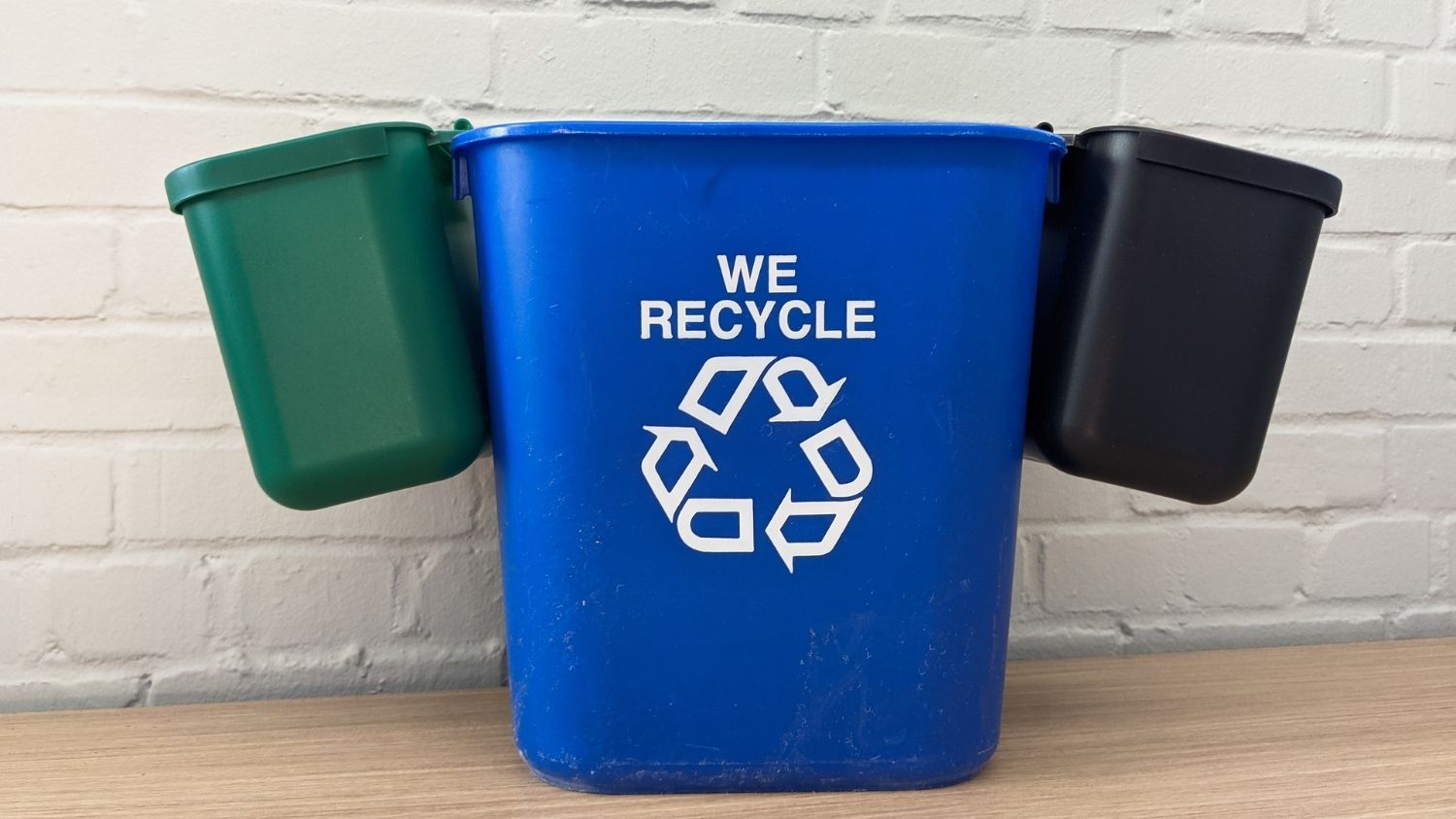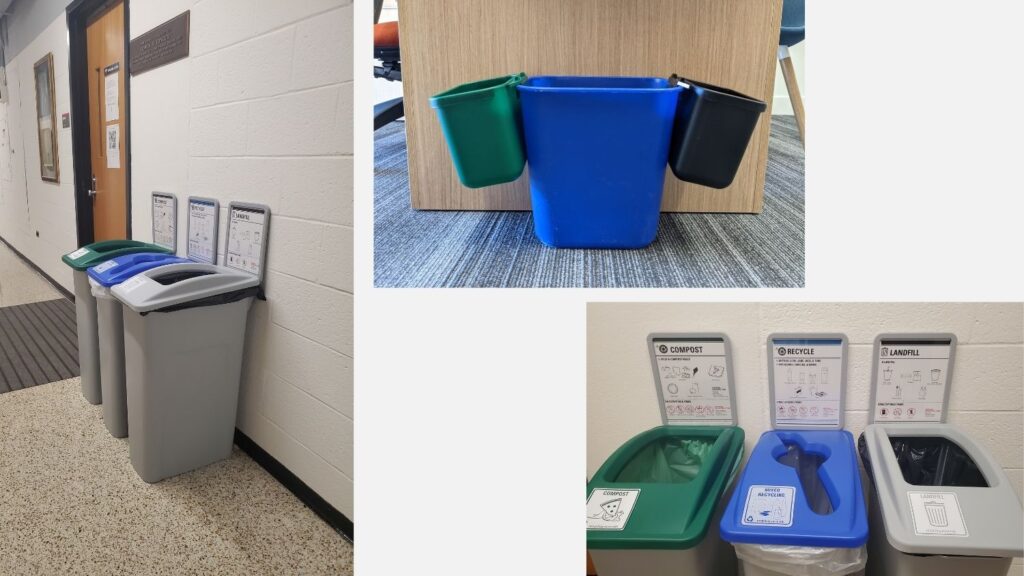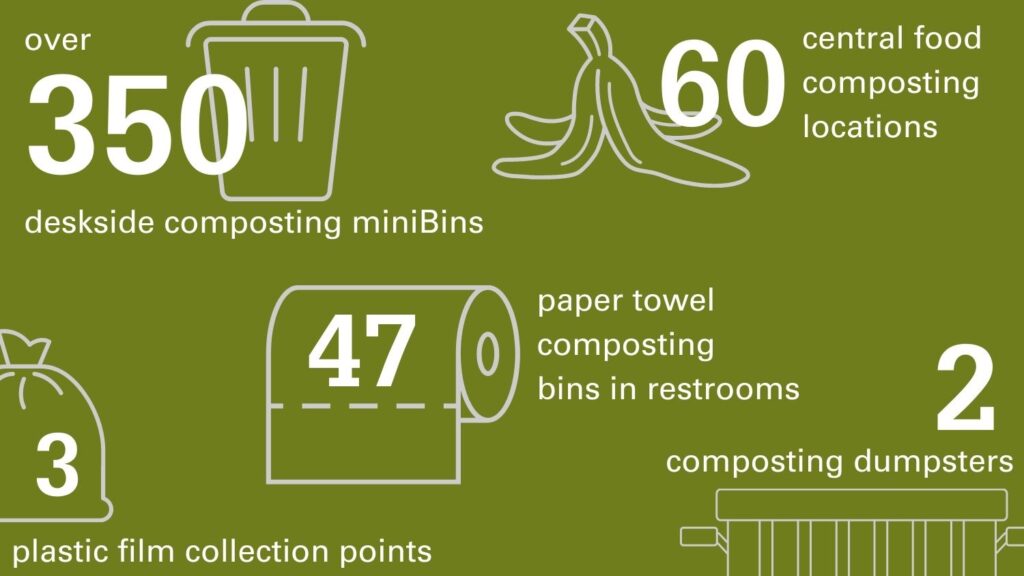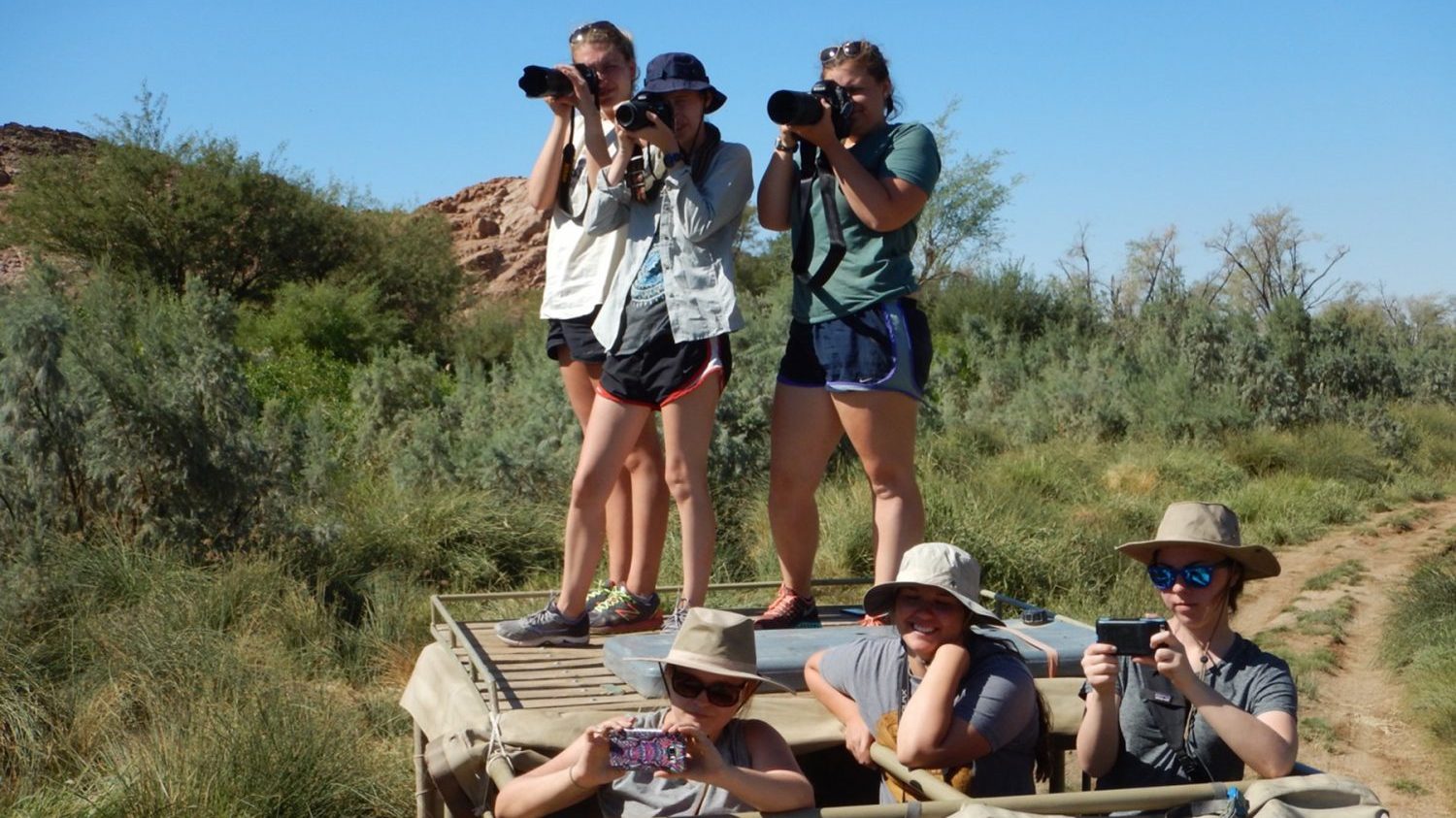The College of Natural Resources is Now a Zero Waste Workplace

Paper towels and food scraps will no longer be thrown away in the College of Natural Resources, thanks to a new composting program. The college recently became a Zero Waste Workplace and the first college on campus to implement the program throughout all its buildings.
NC State’s Zero Waste Workplace program is a joint effort between Waste Reduction and Recycling and University Housekeeping. It has four main goals: bin optimization, composting, specialized waste collections and education.
Joshua Gira and Connor Celentano, both College of Natural Resources staff, were the drivers behind the project. Gira, director of information and instructional technology and operations, has led multiple sustainability efforts throughout the college. Celentano, assistant facilities coordinator, has also been instrumental in the college’s waste reduction efforts, for which he was recognized as a 2021 NC State Sustainability Award Winner.
For Gira, the Zero Waste Workplace program is all about aligning with the college’s name and message. “I’m really excited we’re doing these projects, because they marry so well to what we do,” he said.
The initial plan was to only bring composting to Biltmore as a pilot for the larger project. But after working with Waste Reduction and Recycling, the team decided to deploy bins across all College of Natural Resources buildings.

The existing 350 desk-side waste bins have been replaced with composting MiniBins, reducing trash and eliminating the need for plastic liners. The program requires user action from staff, who empty the “MiniBins” in their offices into larger bins placed throughout the hallways.
There are also composting bins located in the restrooms to collect paper towels, which are the college’s main source of compostable material. Once the material leaves the buildings, it’s delivered to NC State’s Compost Facility and Research Cooperative off Lake Wheeler Road.
In the future, Gira hopes the new Natural Resources café will offer compostable lids, which eliminate waste from both plastic lids and straws. Unfortunately, compostable materials like these are more expensive and can even start to break down if not used in time. Plans will be made in collaboration with University Dining and the future coffee vendor, which is yet to be determined.
The college’s waste reduction initiatives have also been implemented in the labs, which generate different kinds of waste that often require sorting or special collections. “We work with them to make sure that we are getting the most out of the building and diverting it out of the landfill in the easiest and most efficient way possible,” said Lani St. Hill, outreach coordinator for Waste Reduction and Recycling.

Celentano has been working with Adam Bensley, Waste Reduction and Recycling’s waste diversion coordinator, to reduce the waste generated from lab renovations. He recently found that Habitat for Humanity ReStore can utilize a lot of what is demoed. “It may take a little longer to have it demoed, but they’re able to resell it at the store in Durham,” Celentano said. This also reduces the budget by avoiding dumpster fees and daily cleanups.
Composting could be especially helpful in reducing waste from the Pulp and Paper Labs, which test paper products like paper towels. Hodges Wood Products Lab has long had a composting dumpster for sawdust. They’re now working with Bensley to divert non-compostable materials, such as engineered wood, by donating them to organizations including Habitat for Humanity and the Scrap Exchange.
St. Hill stresses that the program needs to adjust and be flexible as more students, faculty and staff return to campus. Customized bin signage currently depicts the specific types of waste created in each building and is used to encourage compliance.
“There’s an element of responsibility,” Gira said. “You have to sort your trash … So composting’s only going to be successful if people take the time to put things in compost that should be there and not things that shouldn’t.”


